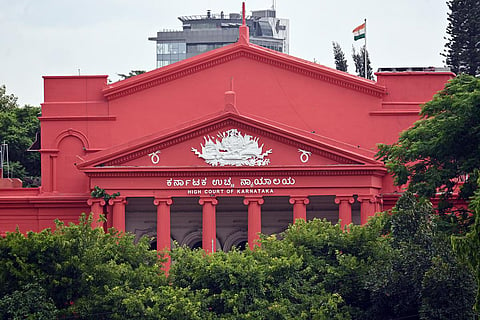

BENGALURU: The Karnataka High Court on Wednesday passed an interim order staying all further investigation on the First Information Report registered against Bharatiya Janata Party IT Cell head Amit Malviya for posting a video with a caption in Hindi, “Rahul Gandhi Vidhesi takato ka mohra? (Rahul Gandhi pawn of foreign powers)”, on Twitter allegedly targeting the former Congress MP.
Justice M Nagaprasanna passed the order after hearing the petition filed by Malviya, questioning the First Information Report registered by Congress leader Ramesh Babu with the High Ground Police in Bengaluru on June 19, 2023, under Sections 505(2) (promoting hatred between classes), 153(A) (promoting enmity between two groups), 120 (b) read with Section 34 of IPC.
The court said the matter requires consideration. “If further investigation is permitted to continue, it would run foul of the judgment of the apex court in the case of Patricia Mukhim vs State of Meghalaya which interpreted the purport of the said provisions of the IPC. For all these reasons, further investigation in crime pending before the 8th Additional Chief Metropolitan Magistrate Court, Bengaluru, shall remain stayed,” the court added.
It was alleged that the petitioner posted a tweet on his personal Twitter account stating that Rahul Gandhi is dangerous and playing an insidious game and the same is derogatory and would bring in enmity between two different groups.
Advocate and Bengaluru South Member of Parliament Tejasvi Surya, appearing for the petitioner, argued that the tweet was against an individual who is said to be the leader of the Indian National Congress and if it is against an individual how it would become an act of creating enmity between two different groups. An individual is neither a group nor a class for invocation of Section 153-A or 505(2) of the IPC, he said. The complaint does not divulge how the tweet in question could become the offences under the said provisions of the IPC, he argued.